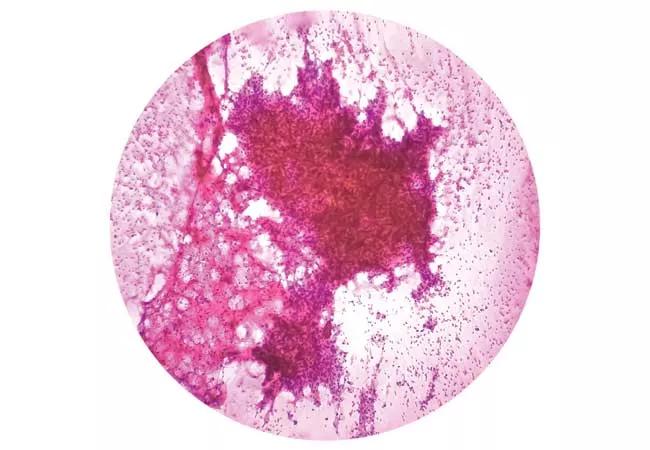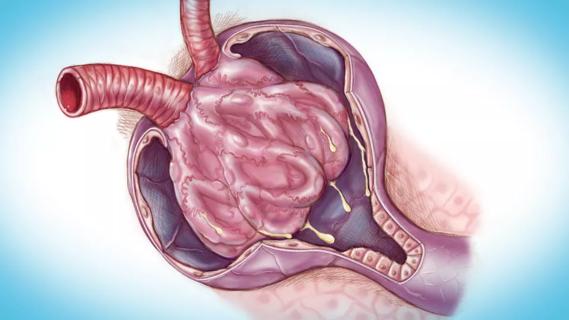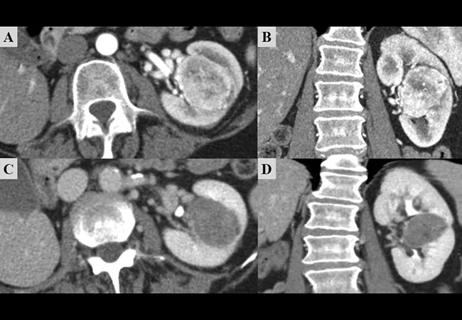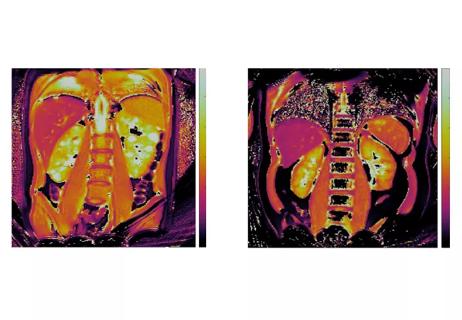Belzutifan superior to everolimus in phase 3 clinical trial

Historically, treatment for renal cell carcinoma has involved immunotherapy and targeted therapy. Many patients eventually exhaust these therapies and need a new approach, but no alternatives exist. Now a novel drug called belzutifan shows promise as a new treatment option that could be a significant improvement over existing therapies.
Advertisement
Cleveland Clinic is a non-profit academic medical center. Advertising on our site helps support our mission. We do not endorse non-Cleveland Clinic products or services. Policy
In a phase 3 clinical trial involving patients with refractory clear-cell renal cell carcinoma, progression-free survival was superior in patients receiving belzutifan over those receiving everolimus, an mTOR inhibitor that’s a standard targeted therapy for refractory kidney cancer. Patients on belzutifan also had a higher objective response rate, and the drug was well tolerated.
“This was a big deal for us,” said co-investigator Moshe Ornstein, MD, MA, a medical oncologist at Cleveland Clinic. “It’s been many years since a therapy with a novel mechanism of action has been developed in kidney cancer.”
The medication received FDA approval today. The new drug is a hypoxia-inducible factor (HIF-2) alpha inhibitor that targets the hypoxia-inducible factor (HIF) regulatory pathway, which is known to play a crucial role in the pathophysiology of clear-cell kidney cancer. In most cases of clear-cell renal cell cancer, the VHL gene is inactivated, triggering an overexpression of HIF, which in turn drives an expression of various oncogenes. HIF-2 alpha is consistently active in cases of clear-cell kidney cancer, indicating that it is an oncogenic driver of the disease.
“For a long time, the VHL pathway has been implicated in the pathogenesis of kidney cancer, and we’ve never been able to target it,” Dr. Ornstein says. “This is the first agent that’s been able to target HIF-2 alpha directly.”
Belzutifan is already approved for use in VHL syndrome, a hereditary disorder that causes hemangioblastomas, clear-cell kidney cancer and other lesions. This new clinical trial explores its use in patients who have clear-cell kidney cancer that is not linked to VHL syndrome.
Advertisement
In the new study, patients who were given belzutifan had a 25% reduction in risk of progression compared to those who received everolimus; 23% of the belzutifan patients responded to treatment compared to 3.5% of patients in the everolimus group.
Ornstein noted that researchers saw a signal for overall survival benefit with the new drug but that it had not yet met statistical significance.
The most common side effect was anemia, which was expected, and the second most common side effect was fatigue. Patients taking belzutifan also scored higher on quality-of-life assessments. “The agent overall is an exceptionally well-tolerated therapy,” Ornstein says. “When we think about treating patients with refractory kidney cancer, where we’re not necessarily curing them, quality of life and the side effect profile are really important.”
A significant limitation is that the trial doesn’t look at the drug in patients with non-clear cell renal cell carcinoma. Next, researchers are planning to follow up on the study by tracking additional data on overall survival. In addition, studies investigating belzutifan in adjuvant, frontline and second-line settings for clear-cell kidney cancer are already underway.
“One of the big questions, given how well this drug is targeted, is whether this could potentially replace the older targeted therapies, even as a frontline therapy,” Ornstein says. “I believe this is just the tip of the iceberg for belzutifan in patients with advanced kidney cancer.”
Advertisement
Advertisement

One pediatric urologist’s quest to improve the status quo

First single-port renal vein transposition reduces recovery time and improves outcomes

Fully-automated process uses preop CT, baseline GFR to estimate post-nephrectomy renal function

Management of high-risk RMSK in the pre-and current eras of neoadjuvant therapy

NIH-funded study explores novel MRI technique to stage cystic kidney disease

AI-generated model bests predictive abilities of human experts

Study highlights benefits of nephrologist-led urine sediment analysis

Using sequencing data to identify novel factors linked to kidney disease with unknown origin